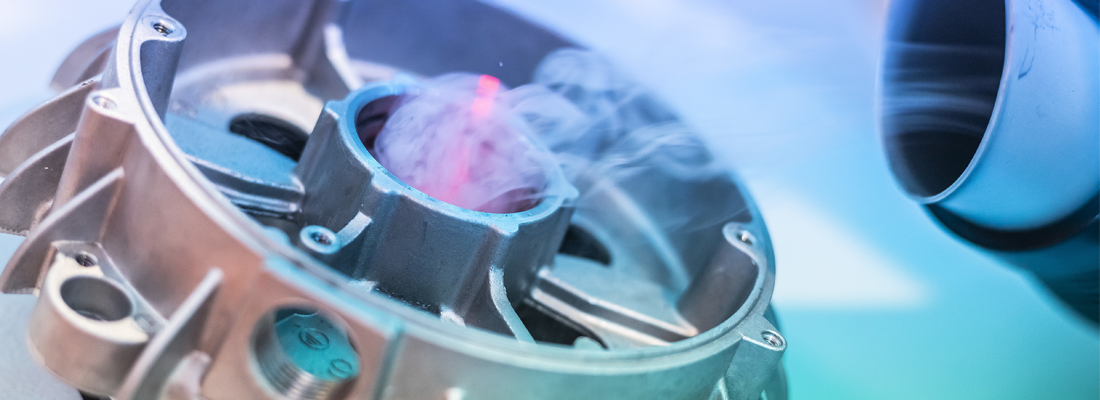Reasons for filtering air
Why does air need to be filtered?
If air is contaminated, dangerous particles, which arise e.g. during welding, could enter the bloodstream which supplies the organs with oxygen. When these tiny particles remain in the body, they can cause severe diseases such as lung cancer. In order to prevent that, air filtration is especially necessary when a work process creates such dangerous particles. Air might be invisible, does not have a taste or odor and cannot be touched, but no living creature can live without it. A person can survive without air for only about 5 minutes. While food is a deliberate activity and every person can decide what is on the table, the oxygen supply is unconscious. How many times have you thought about what you let into your body 12 to 18 times a minute? The pollutant concentration increases especially in manufacturing processes. Even though every human body has its own filters such as the cilia in the trachea and bronchi, or the lungs, they can only digest organic particles. Industries mostly process metal, which is inorganic and therefore harmful to employees when inhaling its dust. Due to their tiny particle sizes of only a few micrometers, they are mostly invisible to the human eye. This leads to underestimating the danger of metal dust and similar inorganic emissions. The chances of getting severe diseases such as lung cancer and allergies are highly increasing. Only a HEPA air filtration system is able to filter these particles and prevent employees from breathing in contaminated air. Ventilation leads to an exchange between the indoor and outdoor air. In industrial areas of large cities, however, the pollutant values are close to the permissible limit values of 50 micrograms per cubic meter. The outside air is heavily loaded and brings even more pollutants into the room when aerating. A filter and extraction system sucks in the polluted air, which results in particles sticking to the integrated filters. After the filtration, only the cleaned air gets back into the room. Invest in the future In the long term, employees are more productive and effective, as they are less susceptible to diseases caused by dusts in manufacturing processes. For many employers, health and safety do not seem to be as profitable as a new manufacturing machine, but in the long term, they are extremely valuable. Nowadays, high-tech facilities require skilled staff who need a healthy environment to work efficiently. As a resource-poor country, it is even more important to Germany building on the inventiveness and creativity of its people. Within a few years, there will be more employees older than 50 years and fewer under 30 years, due to demographic change. If people are supposed to work well into old age, the country and each company must take care to ensure that the older people, even above the age of 60, are still able and motivated to work effectively. Human capital is an essential part in increasing sales and profits. According to a 2006 study of the Federal Institute for Occupational Safety and Health, the third most common disease is related to respiration. As a result, annual production losses of 5.5 billion Euro are incurred. In 2005, a non-productive time lasting for only one day caused about 90 Euro lost in production costs in medium-sized businesses. Preventing illnesses reduce downtime costs. [1] [1] Source: (German Federal Institute for Occupational Safety and Health, 2007)Find a suitable filter and extraction system that meets your requirements and fits to your production process or contact us in case you want some assistance or have further questions.
Do you have any further questions? Please call us at +49 (0) 7082/9473-0 or send us an e-mail to info@tbh.eu.
